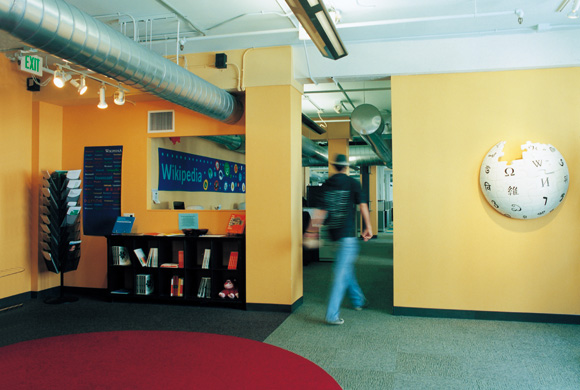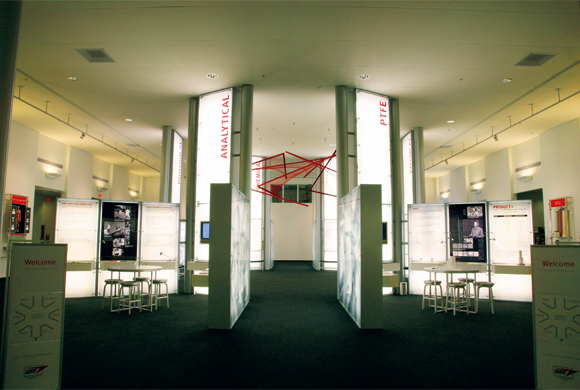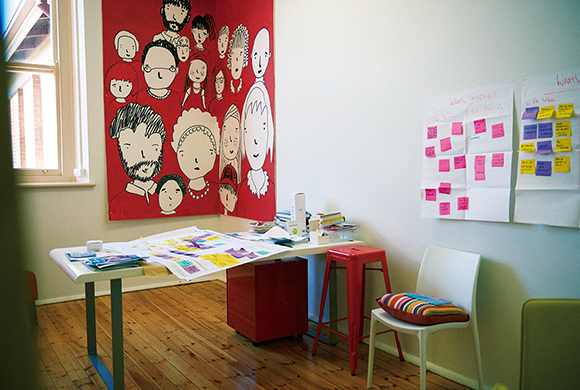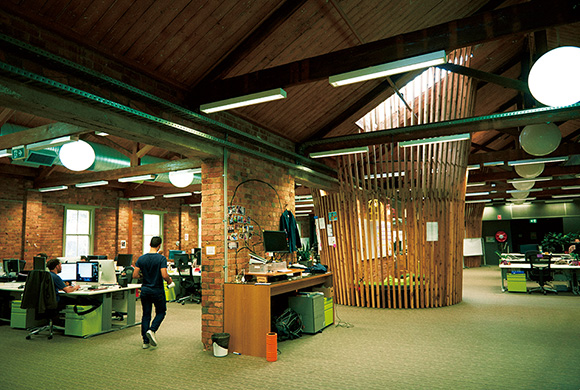Workplace
Jan. 5, 2015
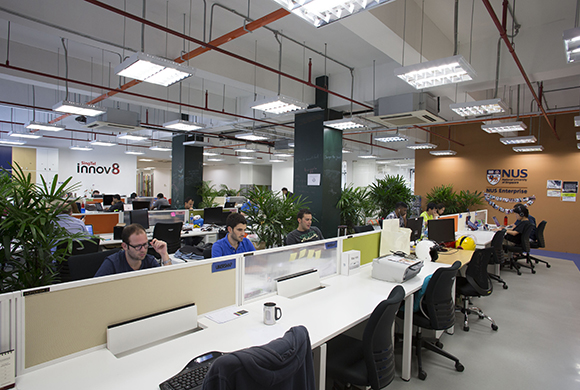
Building a community:
Developing Singapore’s entrepreneurial culture
A Singaporean incubator
[Plug-In@Blk71] Singapore
There is a rather special block of office space in Singapore called Blk71, located off Ayer Rajah. A number of start-ups are gathered together in this building. At the heart of it is an incubator called Plug-In@Blk71; it is operated by the National University of Singapore (NUS) through NUS Enterprise.
Plug-In@Blk71 came about from the initiatives of NUS Enterprise, SingTel Innov8 and Media Development Authority of Singapore. The three parties saw the opportunity to redevelop a dilapidated 40 year-old building sited within a light industrial estate, which was bound for demolition, into a space that could be used by the start-up community. They set about gathering likeminded entrepreneurs to the block and set up Plug-In@Blk71 to support the needs of the entrepreneurs.
“There are lots of incubators in Singapore, but what makes Plug-In@Blk71 really special is the community of start-ups, incubators, venture capitalists, industry representatives, all together in this unique location,” says NUS Enterprise CEO Lily Chan.
Blk71 hosts approximately 250 start-ups, 30 incubator/investors/venture capitalists. Of these, approximately 40 start-ups are sited in Plug-In@Blk71. Plug-In@Blk71 is on level 2 of the block, and provides shared meeting spaces as well as other support services for the start-ups.
“Since we were founded, our idea has always been to create a community,” Dr. Chan says. “Having people who are passionate about start-ups all together builds a stimulating community. Not only is NUS Enterprise managing Plug-In@Blk71, it also manages other spaces and supports other start-ups in the block. Other incubators, accelerators, financiers and angel investors are physically present as well, and that builds the community.”
 An exterior view of Plug-In@Blk71, located in an industrial estate that was scheduled for demolition.
An exterior view of Plug-In@Blk71, located in an industrial estate that was scheduled for demolition.
Founded:2012
http://www.blk71.com
 Dr. Lily Chan, CEO, NUS Enterprise
Dr. Lily Chan, CEO, NUS Enterprise
Plug-In@Blk71 is an example of the diversity referred to by Dr Chan. While managed by NUS Enterprise, it was made possible through collaborative efforts with Asia’s largest mobile phone operator, SingTel (Singapore Telephone).
“SingTel has a start-up support section called SingTel Innov8 which has been an important supporter and investor for the start-up community”” Dr. Chan says. “SingTel Innov8’s presence at Blk71 also attracted other investors, and created what I think is a good, competitive environment.”
Looking at it from SingTel Innov8’s side, by having its office in Plug-In@Blk71, it has close contact with the start-up companies, allowing it to quickly discover outstanding business models. “The collaboration with SingTel Innov8 is a win-win, and something we can truly call a success,” Dr. Chan says. “We’re currently considering whether it would be possible to take this concept internationally as well.”
The start-up companies present in Plug-In@Blk71 receive a number of benefits, one of which is the shared desk system called Hotdesk. This space is for smaller companies of two or three people, and can be used free-of-charge for a maximum ofsix months?. It’s not only about being able to use this space rent free, but the invaluable opportunity to meet and talk with potential mentors and investors. They also get advanced information and easy access to events and other sessions held at Plug-In@Blk71, and other opportunities for developing business with other companies.
“Just by walking into the facilities, people are plugged into different communities,” Dr. Chan says. “The Plug-In@Blk71 name conveys this meaning. To help the residents of Plug-In@BLK71 feel that they want to be plugged in, we hold our CEO Night at regular intervals, in which we bring the CEOs of successful start-up companies together. We hold other events too, not just those of NUS Enterprise but of other companies as well.”
Naturally, there is a space for the companies that have graduated from the Hotdesking facilities. There are larger spaces for those companies that are growing, with offices for five to six people, others for about ten, and a wide selection of other spaces. Unlike the Hotdesking facilities these are paid facilities, but because of government subsidies it is still cheaper than using private facilities. When the total number of employees exceeds 20, a company has risen to the last stages where it can be called a start-up, and they can benefit from even bigger office space of about 1,000 square meters.
“As we were planning the space, we paid attention to the fact that there are people who dislike being surrounded by people when they work, and those who like that, and that we should welcome both,” Dr. Chan says. “We have lots of plants at Plug-In@Blk71, one clever way to create a semi-private feeling throughout.”
As the number of start-up entrepreneurs taking advantage of Plug-In@Blk71 has continued to grow over the last two and a half years from the start of its operations, there is need for more space. There are times when the entrepreneurs require privacy as part of their work, NUS Enterprise is considering the expansion of the number of private rooms.
However, Dr. Chan says, “The most important thing for us remains the community, not the space. If no one was committed to the community at the Blk, it would be impossible for Plug-In@Blk71 to exist or continue as it has done today.” The goal always is to create and nurture the entrepreneurs who will support Singapore’s economy in the future. So rather than simply expanding the space, Dr. Chan is making it the highest priority to build a space which ensures that the community will be active.
Consultancy for Work Style:in-house
Interior Design:in-house + Ong&Ong Group

Media coverage of plug-In@Blk71, displayed inside the facility

Information on upcoming events posted in Plug-In@Blk71

Planters are set throughout the interior of Plug-In@Blk71






